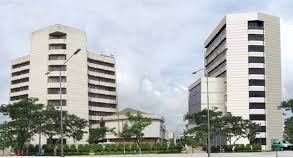Bangladesh’s banking sector is facing an unprecedented crisis as defaulted loans surged to Tk 4.20 trillion (Tk 420,334 crore) by the end of March 2025—marking a record 24.13% of total outstanding loans, according to the latest data released by Bangladesh Bank on Sunday.
This means that one in every four taka lent by banks is now in default.
The volume of defaulted loans jumped by Tk 745.70 billion (Tk 74,570 crore) in just three months, up from Tk 3.45 trillion in December 2024. In September 2024, the figure stood at Tk 2.85 trillion, underscoring the rapid deterioration in loan quality.
Central bank officials attributed the surge to widespread loan disbursement irregularities under the recently ousted Awami League government, particularly involving politically connected businesses. Following the student-led uprising and change of regime in August 2024, the real extent of non-performing loans (NPLs) began to surface.
Many of the defaulted loans were taken under fictitious names or with political backing and have remained unpaid. The Bangladesh Bank has also tightened loan classification rules in line with international standards, uncovering defaults previously hidden under lenient restructuring policies. As a result, loans once rolled over or rescheduled are now being reclassified as non-performing.
Total outstanding bank loans rose to Tk 17.42 trillion by March 2025, from Tk 17.11 trillion in December.
State-Owned Banks Hit Hardest
State-owned banks have been the worst affected, with NPLs rising to 45.79%, up from 42.83% in December. Private commercial banks saw their default rate climb to 20.16% from 15.60%.
When the Awami League assumed power in 2009, total defaulted loans stood at just Tk 224.81 billion (Tk 22,481 crore). Economists have long warned that politically linked borrowers were draining the banking system and facilitating large-scale capital flight.
Fall of Favoritism Reveals Deep Systemic Rot
In response, the central bank has withdrawn several relaxed policies introduced under the previous administration that had allowed banks to mask the true scale of bad loans.
A key reform step includes the planned merger of five troubled Islamic banks—Islami Bank Bangladesh, First Security Islami Bank, Global Islami Bank, Union Bank, and Social Islami Bank—all previously influenced by controversial business conglomerate S. Alam Group, known for its close ties to the former ruling party.
Sources say major corporate groups including Beximco (owned by former PM Sheikh Hasina’s adviser Salman F Rahman) and S. Alam Group are among the top defaulters contributing to the surge.
As Bangladesh’s financial system grapples with the fallout, analysts warn that without urgent reforms in transparency, accountability, and legal enforcement, the banking sector could face deeper instability in the months ahead.

